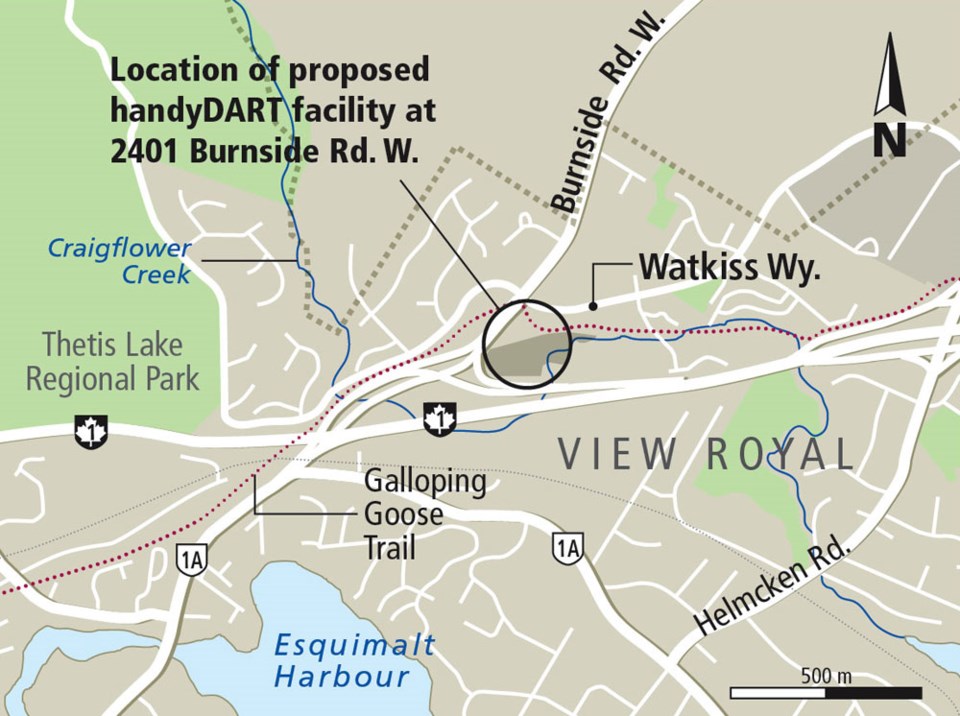A commentary by the mayor of View Royal.
The province’s intention to override local government zoning and, against the wishes of council and residents, build a handyDART facility in View Royal became public last week.
View Royal council recognizes the importance of the handyDART service and values B.C. Transit as a respected community partner. However, this situation is about much more than handyDART.
It questions the very independence of local governments and their communities to make land-use decisions with confidence. It sets a troubling precedent and one cannot help but wonder how secure any zone is, should the province proceed with this.
Plain and simple, land use is a local government matter. We elect councils to run their communities on behalf of their residents.
In 1996, then-premier Glen Clark signed a protocol of recognition with the Union of British Columbia Municipalities.
This is a long document with many clauses but one that jumps out is: “The province recognizes local government as an independent, responsible and accountable order of government.”
Another is: “The objective of both parties is to ensure a clear division of responsibilities.”
Local government must be an independent order of government. Our communities depend on this principle and over the years, both the federal and provincial governments have respected this.
The recent decision sets us back a long way, should it stand.
How can land-use planning not be a local government issue? Strong planning principles are essential to the well-being of communities.
What planning principles have been used in this case, other than that the province owns the land at the proposed handyDART site and it is convenient for them?
In 2001, the government of then-premier Ujjal Dosanjh issued this statement: “The provincial government has committed that Crown corporations should abide by local zoning and land-use bylaws.
To this end the premier has written to the CEOs of all Crown corporations requesting they honour this principle in their day-to-day operations.”
Our council has no choice but to stand up for these principles and for our town. We have a duty to our residents, and we have a duty to remind the province that inter-governmental relationships must be carried out in a collaborative, respectful and constructive manner. Wielding a hammer will never produce good results.
I want to assure our residents that we will be working diligently to ensure that all the very legitimate concerns raised are addressed.



